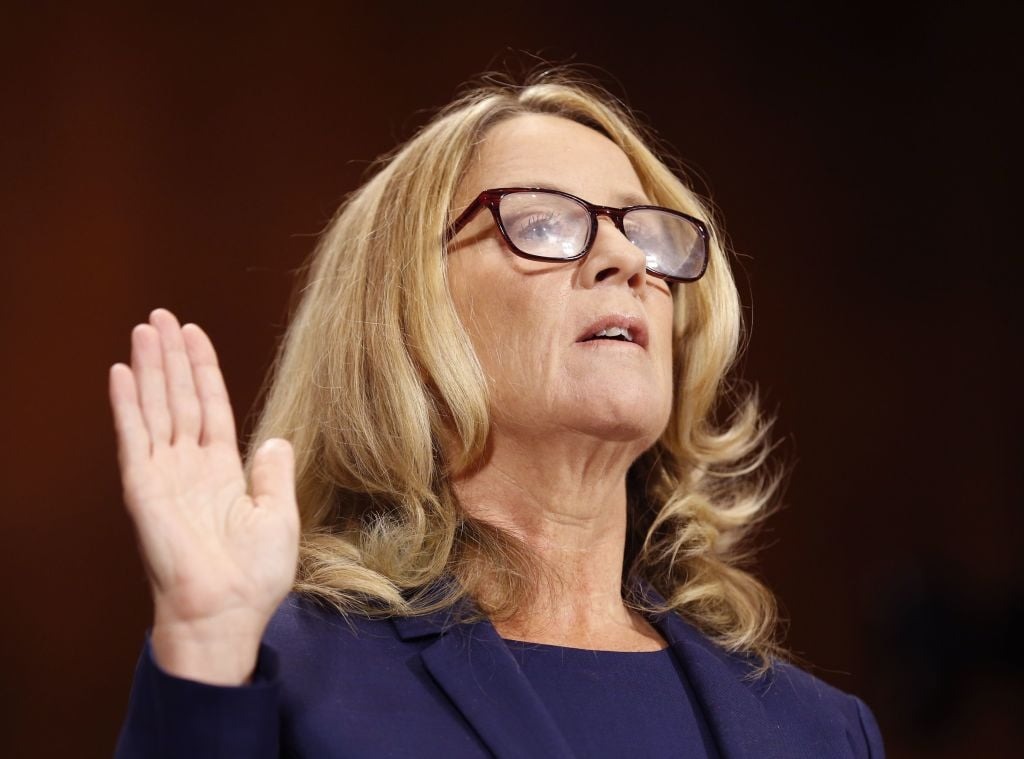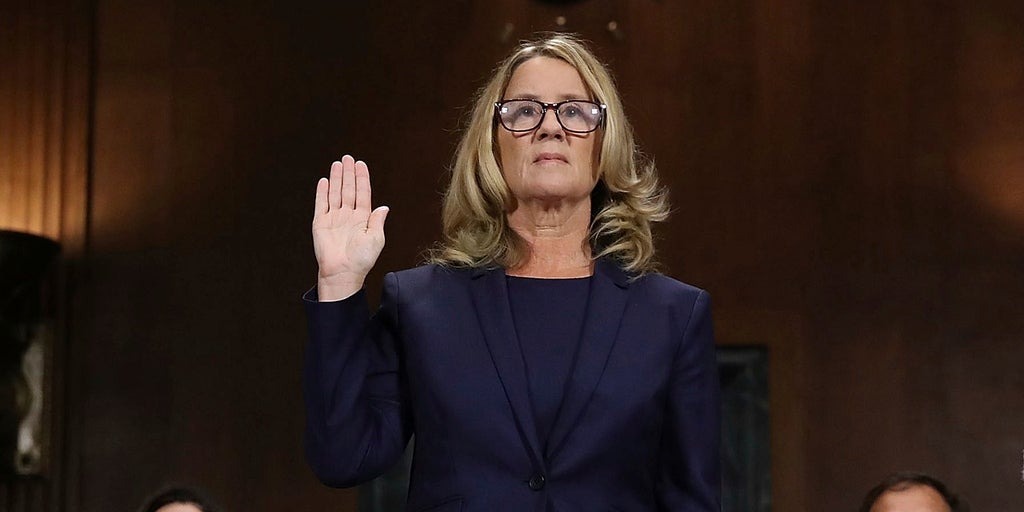Retaliation appears to be a prevailing sentiment within right-wing circles, with Donald Trump‘s ominous pledge to make it the cornerstone of his potential second term.
Given this backdrop, one might anticipate Christine Blasey Ford’s memoir to be a platform for seeking vengeance against Supreme Court Justice Brett M. Kavanaugh and others who maligned her after she publicly accused Kavanaugh of sexual assault in 2018.
However, Ford’s approach is far from vengeful. In her book “One Way Back,” the psychology professor opens with a declaration that she initially contemplated using her narrative as a weapon against those who tarnished her life. Yet, she swiftly dismisses this notion, asserting that writing a book fueled by vendettas is untenable.

Christine Blasey Ford’s memoir (Credits: AP News)
Instead of fixating on Kavanaugh, Ford’s memoir delves into the consequences of her allegation, recounting the trauma, threats, and the quest for normalcy that ensued.
While she refrains from critiquing Kavanaugh’s conservative track record on the court, her narrative subtly underscores the personal turmoil he may be experiencing as a father of young daughters.
Ford’s decision to pen “One Way Back” stems from her desire to acknowledge and express gratitude to the multitude of supporters and sexual assault survivors who rallied behind her. Through her memoir, she endeavors to address the enduring societal failure to confront the prevalence of sexual assault and the stigma borne by victims.
Ford writes with a focus on future generations, particularly young women who remain vulnerable to sexual violence, and the responsibility of young men, including her own sons, in combatting injustice. Her reflections on parenthood and empathy towards parents of daughters underscore the profound impact of her own experiences on her worldview.
As a mother, Ford empathizes with the pervasive fear harbored by parents of young girls as they navigate a world fraught with danger. Reflecting on her own upbringing and experiences, she shares valuable lessons with her children, urging them to prioritize safety and communication.

Christine Ford (Credits: Fox News)
Regarding Kavanaugh, my own investigations and interactions with Ford and other accusers lead me to believe that he did perpetrate the assaults she and others have alleged. Despite these allegations, his confirmation to the Supreme Court symbolized a setback for the #MeToo movement, as influential Republican figures rallied behind him to safeguard their interests.
Now, as Kavanaugh’s daughters reach the age Ford was at the time of her alleged assault, I cannot help but imagine the weight of responsibility he bears as a father. His daughters, once used as props during his confirmation hearings, now represent a stark reminder of the fear and vulnerability parents of young girls face.
In contemplating Kavanaugh’s predicament, I remember Ford’s words: “I can’t imagine what that’s like.” Yet, I cannot help but view it as a form of retribution, a reckoning for past actions.


























